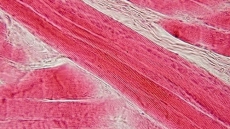Researchers have uncovered a new way to block neuropathic pain including pain caused by chemotherapeutic agents and bone cancer.
Turning on a receptor called A3 in the brain and spinal cord could quell pain, the results of the research found.
The receptor can be activated by its chemical stimulator, the small molecule adenosine.
"It has long been appreciated that harnessing the potent pain-killing effects of adenosine could provide a breakthrough step towards an effective treatment for chronic pain," said researcher Daniela Salvemini from the Saint Louis University in the US.
"Our findings suggest that this goal may be achieved by focusing future work on the A3AR (adenosine receptor) pathway as its activation provides robust pain reduction across several types of pain," Salvemini added.
The most successful pharmacological approaches for the treatment of chronic pain rely on certain pathways: circuits involving opioid, adrenergic and calcium channels.
For the past decade, scientists have tried to take advantage of these known pathways where the series of interactions between molecular-level components take place that consequently lead to pain.
While adenosine had shown potential for pain-killing in humans, researchers had not successfully leveraged this particular pain pathway because the targeted receptor engaged many side effects.
In this research on animal models, Salvemini and colleagues demonstrated that activation of the A3 adenosine receptor subtype is key in mediating the pain relieving effects of adenosine.
The study appeared in the journal Brain.





